Seana Smith swore she’d never end up like her father.
Growing up in Edinburgh, Scotland, she and her family would often go sailing, camping and admire the strawberry fields near their home in springtime.
But all of these adventures were tainted by her father’s drinking problem.
‘Our childhood was this mad mixture of delight and fear,’ Seana, 61, tells me.
‘We never knew what Dad was going to be like when he walked through the door.
‘My father could be great fun and adventurous – other times he would slam the door shut and was very angry. He’d pick on us or blame us for his drinking and got very violent as well. Then he’d regret his actions and say he was sorry.’
As a child, Seana never understood why her mother stayed with her father, as she always wanted to escape the ‘dysfunctional’ household.
At 16, she went to boarding school. Then, as she reached her early 20s – and despite always vowing she wouldn’t – she began to drink regularly.
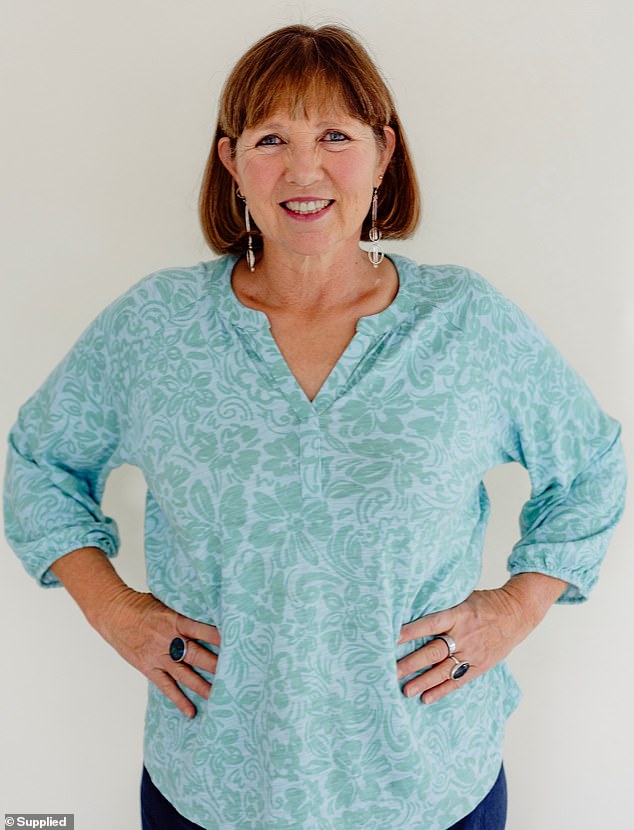
Seana Smith struggled with alcohol throughout her adult life, but finally quit for good at 55
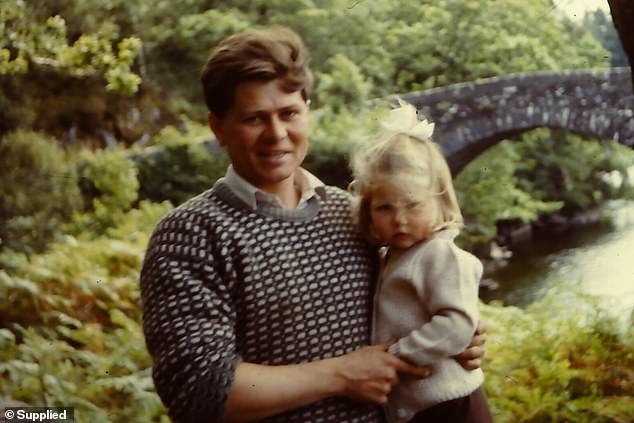
Growing up in Scotland, her childhood was a mixture of delight and fear as her father – who has since died – was an alcoholic
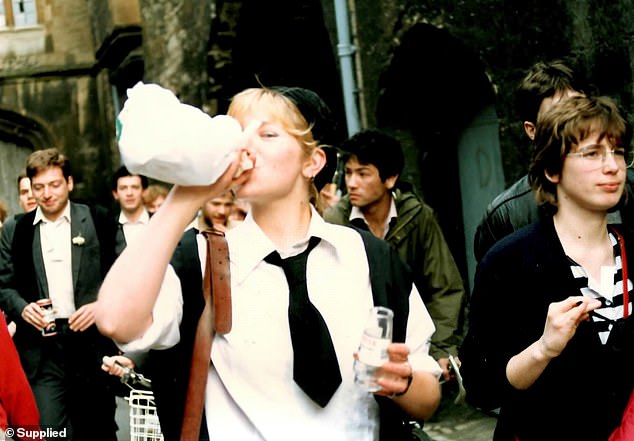
Seana (pictured in her youth) promised herself she’d never be like him
It was the beginning of a decades-long drinking problem that Seana describes as like being ‘stalked’ by alcohol.
When she was 23, she moved to Australia and worked as a television producer for Channel Nine. There, her drinking worsened.
‘I look back in horror when I think about my 20s. It was fun at the time, and looked good from the surface, but I was an absolute mess,’ she recalls.
‘I dated the wrong men who were all drinkers. I couldn’t stay in a job. I don’t know how I managed to get home some nights, and would wake up with the worst anxiety-filled hangovers.’
Working in media, booze was often free-flowing at professional events. Seana would indulge nightly but never missed a day of the job, regardless of how much she drank.
Looking back, she realises she drank so heavily because her ‘self-esteem was so low’.
‘I think that, in lots of ways, I picked up the baton that my dad had passed and I was abusing myself,’ she adds.
‘I would tell myself, “I’m not as bad as Dad,” because I wasn’t. My father once broke his leg from falling out the window, whereas I was never that extreme. But I still didn’t realise I had a drinking problem.’
However, after moving back to Scotland to work for the BBC, Seana suffered a similarly frightening incident.
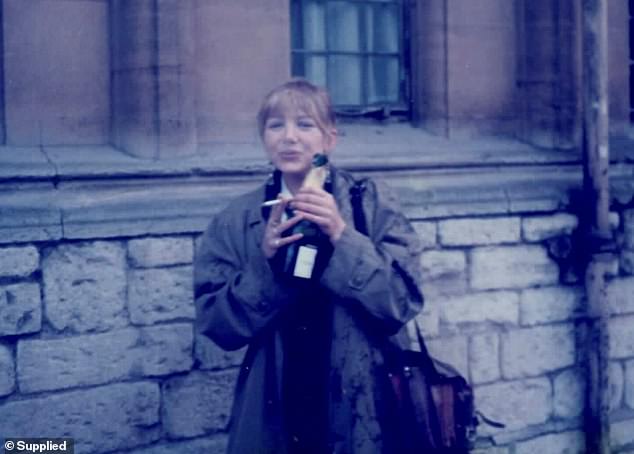
One frosty night in Edinburgh, she broke her ankle dancing on the George IV Bridge (Seana is pictured here in her 20s)
One frosty night in Edinburgh, she broke her ankle dancing on the George IV Bridge, but somehow still carried on to the next nightclub.
The next morning, she took herself to hospital – only to find herself in an emergency room that was full of still-drunk and hungover patients.
It was a wake-up call.
At 30, Seana went to her first therapy session where she opened up about her drinking. Her therapist made it clear she needed to quit before it was too late.
At about that time, she met her now-husband Paul. The couple welcomed two children together, before moving to Australia as a family.
‘I didn’t drink when the kids were younger and never tapped into that “mummy wine culture”. I took being a mum very seriously and the responsibility of it all,’ Seana says.
But she hadn’t broken the cycle completely.
When her children were a bit older, booze started to creep back into her life.
It started with a glass of wine at dinner. That soon became two or three. If she was at a restaurant, she’d start with two glasses on an empty stomach to ‘feel a buzz’.
Her husband Paul was a fly-in, fly-out worker, which meant he was away for weeks at a time. This meant she often couldn’t drink until the children were in bed.
‘There were nights when I was so annoyed because I couldn’t drink until 9pm, after getting back from taking my kids to gymnastics or sports,’ she admits.
When Paul was home, she would amp up the drinking because she had him around to help with the childcare.
Every morning, after too many glasses of wine the night before, she would wake up filled with anxiety and regret.
‘I’d wake up in the morning feeling as if a witch was scratching the inside of my skull. It was awful and I was in a terrible mess,’ she tells me.
After going the day without a drop, she would feel a ‘scratching sensation in my chest’ by about 4pm – ‘like my body knew it was time for another drink’.
‘That’s addiction – this thing that says “feed me, I need to be fed, I need to drink”.’
She would give in every time.
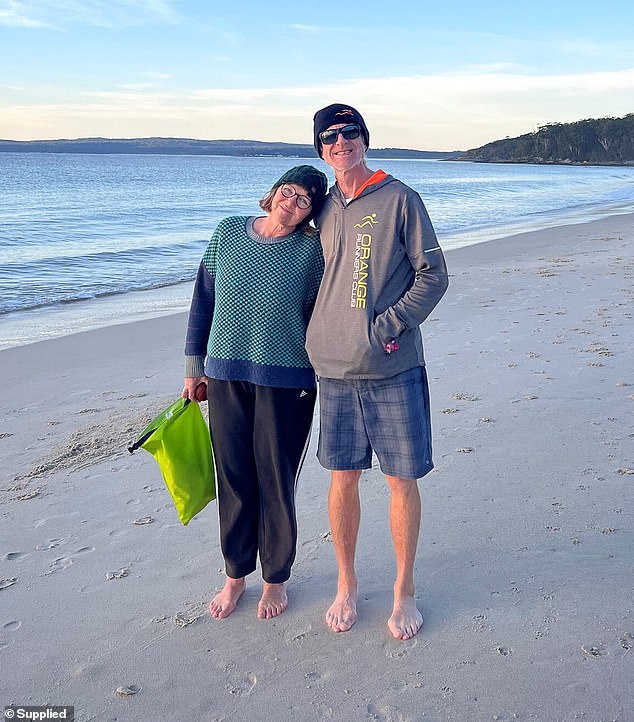
Seana kept the worst of her drinking from her husband. One night, she planned to hide a bottle of wine so she could drink it once he went to bed – that moment, she realised she’d gone too far
‘I played all these tricks on myself to try to think I was drinking less than I was,’ says Seana. One ‘trick’ was only buying alcohol on weekends and refusing to buy more during the week.
Still, her drinking was getting worse. She recalls bringing back boxes of wine from trips to vineyards that ‘wouldn’t last long’, even after she vowed to drink them slowly.
When her drinking was at its worst, Seana would consume a bottle of wine a night.
‘As I got worse and drank more, I wondered if Paul noticed I couldn’t stop – but he never did. I never voiced the struggles in my head. Quietly, I used to think to myself, “How am I going to quit?”‘ she says.
Seana remembers one particular night when she realised she had gone too far.
She wanted to drink more without her husband noticing, so she made a plan to hide a bottle of wine in the garage so she could finish it off when he went off to sleep.
Later, as she reached for the bottle, she stopped herself. This – hiding booze – was a milestone all heavy drinkers fear. A sign you could be an alcoholic.
She knew if she crossed that line, she might never come back.
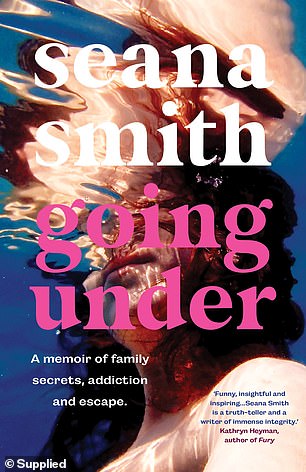
Seana’s memoir ‘Going Under’ shares more of her story
The next day, Seana sat alone in a café, struggling to swallow her coffee as dread churned in her gut.
‘I felt distraught, depressed, overwhelmed and was trying not to cry,’ she says.
‘I was drinking more and more, and felt angry with myself about who I had become.’
While Seana had tried to stop drinking in the past, she had always failed because she had tried to moderate – something she now realises she is incapable of doing.
Finally, in November 2019, she decided to bite the bullet and stop for good.
Seana attended an AA meeting, but says she felt like she ‘didn’t belong’ there among hardcore drinkers whose lives had spiralled completely out of control.
Instead, she turned to podcasts filled with advice and success stories from other women who’d stopped drinking. She also devoured ‘quit-lit’ – inspirational books about getting sober.
Looking back, Seana considers herself a ‘grey-area drinker’ – someone who isn’t a full-blown alcoholic but whose drinking has crossed a line.
‘Once you stop drinking, it’s like stepping out of the Matrix,’ she tells me.
‘From the outside looking in, you start to think, “Why do people do this to themselves?”‘
Seana is now five-and-a-half years sober – and doesn’t plan on picking a drink ever again.
‘My biggest regret is not quitting earlier because life is so much better and easier now,’ she says.
Seana’s memoir ‘Going Under’ shares more of her story












